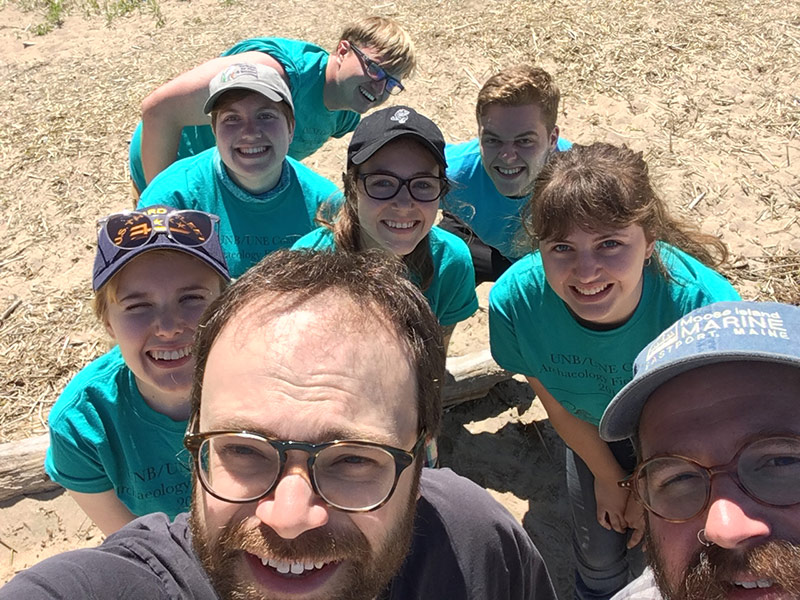UNB students help uncover Maine’s oldest known canoe
Author: UNB Newsroom
Posted on Oct 28, 2019
Category: UNB Fredericton

Students from the University of New Brunswick recently helped uncover Maine’s oldest known canoe.
The students were participating in an archaeology field school in Biddeford, Maine. The field school is led by Dr. Gabriel Hrynick, a faculty member in the department of anthropology at the UNB Fredericton, and Dr. Arthur Anderson, a University of New England faculty member and UNB honorary research associate, also in the department of anthropology.
The canoe was first identified by archaeologist Tim Spahr, principal investigator for the Cape Porpoise Archaeological Alliance, a citizen science archaeological initiative in southern Maine. The remains of the dugout canoe, which were made out of a hollowed-out tree trunk, were carbon tested and estimated to be about 700 years old. Students from both universities collaborated with regional experts to recover the canoe.
Participation in the field school was made possible by funding from FutureNB. Hrynick notes that hands-on training is essential for preparing UNB anthropology students to pursue careers and further study in archaeology.
“Unfortunately, the extended field stays required for anthropology students to learn archaeological methods are cost prohibitive,” says Dr. Hrynick. “Funding from FutureNB permits the anthropology department at UNB to consistently offer rigorous archaeological field schools to our students. Few programs in North America are fortunate to have such support. We’re grateful for the investment FutureNB is making in the next generation of heritage professionals for the northeast.”
Misty McKinney and Alison Ireland, third-year joint honours students in anthropology and history at UNB Fredericton, both participated in the field school last summer.
“It was a fantastic experience and a very positive learning environment,” says Ms. McKinney. “Lifting the canoe from the ground had to be one of most terrifying things I've ever done. But because of Drs. Hrynick and Anderson, I felt confident that I would successfully complete the task at hand. And without FutureNB funding, I would not have been able to attend this course.”
“I literally got to dig my hands into the past which allowed for a more visceral understanding of prehistory than any lecture can provide,” says Ms. Ireland. “The field trip to help recover Maine's oldest dugout canoe was especially exciting because it was a once in a lifetime opportunity. It also gave us the chance to connect with local experts.”
In addition to helping recover the canoe, students spent several weeks learning archaeological techniques at the Chouacouet Site in southern Maine, at an Indigenous village site described by Champlain.
Media contact: Angie Deveau
Photo credit: Dr. Gabriel Hrynick
